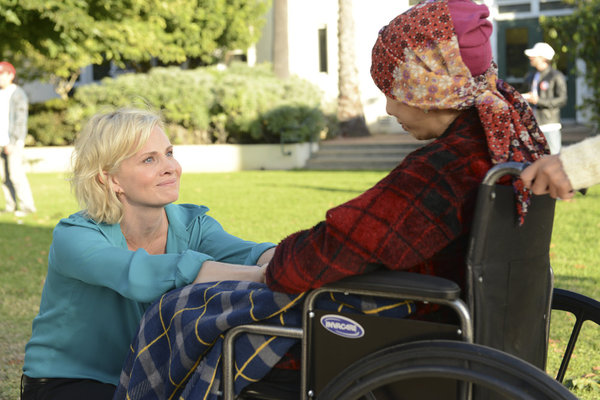 Back Issues: The Hustler Magazine Story
Back Issues: The Hustler Magazine Story
Written by Flynn Hundhausen and Michael Lee Nirenberg
Directed by Michael Lee Nirenberg
USA, 2014
Hustler, the notoriously gritty, shameless skin magazine, could easily double as the name of publisher Larry Flynt’s autobiography. For all the editorial prowess and First Amendment arguments he engineered and fought, he is still just a businessman.
Back Issues: The Hustler Magazine Story makes a point of demonstrating that the magazine’s success lived or died with Flynt’s public profile and outrageous behavior. Be it getting arrested, shot, changing his religious views, or running for President, sales always went up. And personal convictions aside, you can’t help but feel it’s all a long con by a very talented huckster from Kentucky.
Director Michael Lee Nirenberg follows the history of the smut rag in a largely linear fashion, with unprecedented access. Nirenberg’s father William was actually the on-and-off art and creative director for the magazine through the ‘70s and early ‘80s. Despite this very personal connection, the scenes between father and son are few, and little affection is demonstrated. Nirenberg is more interested in the intimate friendships of the history. For the period of what could now be considered Hustler’s golden age, people around Flynt were either unjustly fired during one of his bi-polar fits, or collateral damage, literal or otherwise. Nirenberg’s own father was fired in the late ‘80s for not taking a polygraph. It’s this same fascinating, unpredictable behaviour that also led to Flynt’s candidacy for President. His convictions often seem dictated by his illnesses.
Hustler started as a nudie pamphlet distributed in one of Flynt’s “classier” bars in Ohio. It wasn’t a magazine until well after Flynt had met Screw publisher Al Goldstein, whose political beliefs and black and white nude photos overshadowed his abilities as a marketer. Goldstein was, in his own words, essentially a New York pimp. Flynt’s admiration for Goldstein is clear, but the praise ends at the business-line. So when Hustler began, its politics were nearly admitted plagiarism.
The documentary argues Hustler was never intended as blue collar filth, but as an alternative to Hugh Heffner’s upper crust men’s magazine Playboy. No one ever claimed to read Hustler “just for the interviews.” There is a bittersweet quality to the interviews, with the documentary demonstrating in the bluntest of terms that even pornography can be nostalgic. Or at least, that’s how the subjects feel about it.
Despite Flynt’s unquenchable thirst for media, it’s undeniable that his First Amendment battles in the late ’70s are incredibly significant, and they are often taught in law classes across the country. Those who have seen Milos Forman’s 1996 film The People Vs. Larry Flynt are familiar with the obscenity trials, but the documentary examines them with a larger scope, revealing bizarre, hypocritical truths that occurred simultaneously. During most of the early trials, Flynt considered himself a reborn Christian. According to some friends, “you never knew if it was true.” According to Flynt it was, but he “got over it,” later on nearly leaving his entire industry to atheists.
Ultimately, Back Issues is a story of a particularly recent and lurid sort of Americana, and the man who found a way to exploit and capitalize on it. To this day, in the age of the Internet where paying for nudity is considered the obscenity, Flynt is still profiting.
— Kenny Hedges







